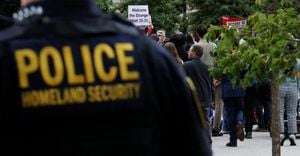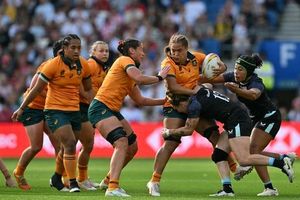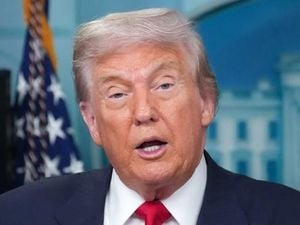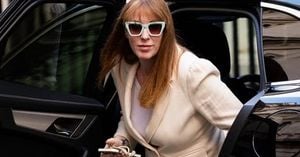Elon Musk is no stranger to bold claims and ambitious timelines, but his recent foray with Tesla's 4680 cylindrical battery wasn't met with universal praise, especially from China's battery giant, Contemporary Amperex Technology Limited, popularly known as CATL. This leading battery manufacturer, which supplies cells to Tesla's Shanghai Gigafactory, has publicly criticized Musk’s knowledge about battery technology.
At the core of the debate lies CATL's founder and chairman, Robin Zeng. He openly dismissed Musk's enthusiasm for the cylindrical 4680 cell technology, labeling it as misguided. During discussions, Zeng stated bluntly, "He doesn’t know how to make a battery. It’s about electrochemistry." This remark highlights the growing tension between the two industry giants.
The cylindrical battery format was chosen by Tesla as part of its larger strategy to boost efficiency and reduce costs. Announced back in 2020, these 4680 batteries were promoted as more energy-dense compared to the older 2170 and 1865 types. Supposedly cheaper to manufacture and easier to assemble, they were expected to power not just the ambitious Cybertruck but also help push the limits of Tesla’s Model Y production.
Recently, Tesla hit a milestone, marking the production of its 100 millionth 4680 cell. This figure signals significant progress, with production ramping up to about 495,000 cells each day, enough to outfit 368 Cybertrucks. It is no surprise, then, why manufacturers and analysts are keeping close tabs on the success of this cylindrical cell format.
During Zeng's candid conversation with Musk, which took place earlier this year, he expressed skepticism about the practicality of the 4680 cylindrical battery. According to Zeng, he had shared his concerns during their debate, but Musk's reaction was simply silence—a response many interpreted as acknowledgment of the criticism. Zeng was quite clear when he said, "His bet on the 4680 cylindrical battery is going to fail and never be successful." Ouch!
The underlying technical issue between both executives is built on differences in battery chemistry. While Tesla's 4680 uses nickel-cobalt-manganese (NCM) cathodes, CATL specializes in lithium iron phosphate (LFP) chemistry. Zeng stressed the benefits of LFP technology, especially for cost-effective mass production, and highlighted CATL's recent advancements, including the introduction of sodium-ion batteries—an even cheaper alternative to LFP cells.
But it’s not just about battery technology. Zeng had additional criticisms aimed at Musk’s tendencies to set aggressive timelines, often underestimations. “Maybe something needs five years, but he says two years,” Zeng recounted from their discussion, indicating Musk's approach may lead to disappointing outcomes. Zeng's remark echoes the industry sentiment where overpromising often leads to under-delivering.
Musk has repeatedly reiterated his vision of achieving full autonomy with Tesla vehicles. This decade-long promise ramped up with the reveal of the Cybercab, a robotaxi expected to operate without steering wheels or pedals. Following such ambitious timelines can amplify public skepticism about Musk's forecasts, as raised by Zeng's insights.
This public sparring between Musk and Zeng reflects broader dynamics at play between U.S. and Chinese companies within the burgeoning electric vehicle (EV) market. With China leading the charge in battery technology and manufacturing capacity, the rivalry between these economic giants could shape global supply chains and technological advancements for years to come.
Both companies are set to play pivotal roles as consumer demand for electric vehicles continues to surge. Despite the criticisms, there's no denying Tesla's success, and equally, CATL's reputation for innovation places both companies at the forefront of this green revolution. We will surely be watching how this interplay of competition and collaboration shapes the future of electric transportation.



